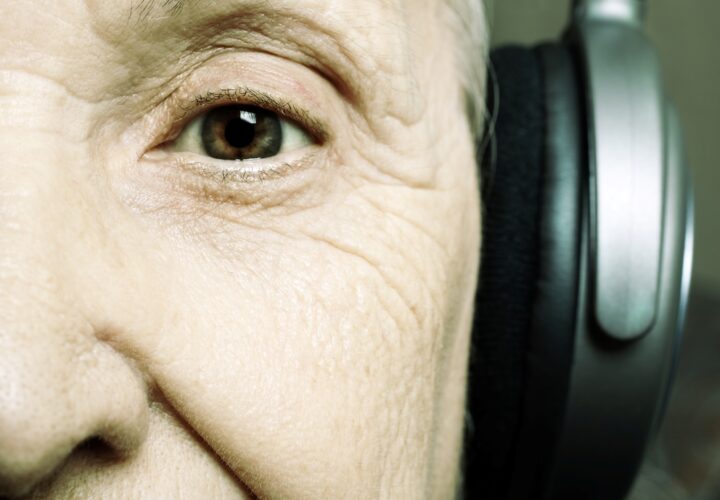To help you understand caregivers' commonly asked questions, we spoke to a family services director who answers calls for a Dementia Alliance hotline.
People living with dementia and their caregivers often feel as if they have nowhere to turn after a diagnosis. Many caregivers need help navigating aggression, financial difficulties, interrupted sleep or communicating with their loved one. To help answer questions that commonly come up among caregivers and show how an expert approaches their everyday concerns, we spoke to Dee Dee Harris, the family services director at the Dementia Alliance of North Carolina. She has been leading the organization’s support groups and answering calls for their hotline for about 20 years.
Q: What is the Dementia Alliance of North Carolina?
A: It is a non-profit that focuses on individuals living with all types of dementia in North Carolina, as well as their families. Alzheimer’s is the most common form of dementia, but it is only one type. We know that various forms of dementia can be caused by vascular issues or something else. This way, we can help everyone.
Sometimes, we focus on global issues, but we are working on doing conferences on frontotemporal dementia (FTD) and Lewy body dementia. Even though some of the advice we offer on how to interact and communicate with a loved one applies to all types of dementia, we know that some of the diagnoses can lead to various symptoms that may affect communication differently, so we are trying to do multiple conferences. In addition, medications that are prescribed differ based on each disease. Sometimes, medication that can temporarily improve memory may help someone with Alzheimer’s, but may not be the best option for someone with frontotemporal dementia.
I love when families really get it and learn what’s most important: to live in the moment with their loved one. They experience joy in those moments and that can leave them with wonderful memories.
We set up some conferences for caregivers too. We do workshops, conferences, speak at churches, clubs and libraries. If the banker in a community better understands dementia, then maybe the beautician will too, and the beautician can educate others. We try to make people more aware of dementia and are trying to build dementia-friendly communities. For example, Cary is trying to become dementia-friendly. Wake Forest has become dementia-friendly. Educating people about dementia and making others in the community aware that there are people with dementia living there helps make locations dementia-friendly.
Q: What is it like answering calls for the hotline?
A: Most of the people who call could be living out of state or they could be living here. We don’t have a 24-hour helpline, but when you call, you will be calling and talking to us. Emails are something that I can check all the time too. However, our hotline is not for emergencies. As a social worker, I want to always be available, but if I don’t take a break, I won’t be helpful. Sometimes, I have to say that I will get back to them. Most of the calls last for 30-45 minutes.
A: Some families call one time, asking questions related to home care or doctor’s visits. The questions can be simple or more complex. My job is to listen, care for and support people. Sometimes, the calls only take 5 minutes, but I’ll take two hours if I need to and do a lot of hand holding. If they say, “I feel threatened by my husband with dementia,” then I need to get them connected with outside resources.
Q: Who attends your support groups?
A: I help 15–20 families. Five guests in my support group are caregivers and have lost their spouse to dementia. I also provide additional help. For example, if someone wants to start a support group at their church, we’ll bring you in for a 3.5-hour training session and discuss what makes you a good trainer. If something new comes out, as far as research, we’ll help you so that you can share it with your support group.
Q: Do you have a family member with dementia?
A: I did not have a family member with dementia when I first started. I was raised in West Virginia and had a comfort level around my grandparents, so I really enjoy working with an elderly population. Later, I lost my aunt who lives in West Virginia to dementia. I will be honest with you; it was interesting to finally have someone who was so close to me pass. It gave me a little insight into what families experience.
Q: What is the biggest challenge families face?
A: The biggest challenge of connecting families with resources is financial challenges. It is hard to connect people with expensive services if they don’t have money. We have a lot of people who are struggling to help as a caregiver, but they don’t have the money to help. You must figure things out about the caregivers and try to get resources for them. There are a lot of people who can’t apply for Medicaid because they are making just a little bit over $1,600 [per month]. You can’t change what your monthly income is. Medicaid looks at your monthly income. You can’t change your social security or your monthly pension. Most of the families call me because they are burnt out, tired and they don’t see a light at the end of the tunnel. They work hard, but they don’t have money the services they may need.
Q: What triggers caregivers for those with dementia, or families, who call the hotline, to reach their breaking point?
A: I think for many, a crisis has to happen first. For example, their loved one just wandered out of the home for the first time, has started to become agitated or combative, or maybe they are falling and one day, they fell, broke their hip and the caregiver doesn’t know what the next step is. I try my best to know what is available or who to send them to for those resources. Many times, they are looking for financial assistance, which is very limited.
Q: What is your immediate advice to caregivers caring for a loved one with dementia?
A: The first thing is to make sure that they have an accurate diagnosis. There are many things that can cause confusion, so we want to rule out anything that can be treated. If they have been tested and determined to have a certain type of dementia, then I would encourage the person to start making legal and financial plans if they are able to. They should start preparing their Power of Attorney, living wills and financial papers.
Q: After working in this field for nearly 30 years, what is the most interesting thing you’ve learned?
A: That every single person’s journey is different. The key is to listen to each one and focus on how to help that family you are working with at that moment. I love when families really get it and learn what’s most important: to live in the moment with their loved one. They experience joy in those moments and that can leave them with wonderful memories. A lot of families’ stories live within me, but one jumps out. It was really hard and helped me understand that dementia does not just affect the elderly population. A 39-year-old woman with frontotemporal dementia came into my office. She had a child that was two years old. It completely caught me off guard. She had a very supportive husband and family but the resources in the community were limited due to her age. This was also one of my first times working with someone who had FTD. Due to the demands on the husband trying to care for his wife, having a two-year-old son and working, he finally allowed her parents in Florida to take her to their home. She passed away at age 41. He got remarried and is doing well but just this past year he started volunteering to help with support groups of FTD caregivers.
Q: How do you know whether or not you should place your loved one in a care facility?
A: Most people ask this question because they are exhausted from all the demands that are put on them, but they feel guilty even thinking about placement. Sometimes, it is evident that their loved one needs to go to a care home because of safety concerns such as wandering or their loved one has become combative. I had a lady in my support group this month that expressed her fears because her husband has become abusive. She is trying to get his medication adjusted but in the meantime, we talked about having a plan to keep her safe. She contacted her local police department to let them know so they can flag it in case she has to call them. We also talk about the importance of not arguing and to get out of the house if they seem the least bit agitated. We asked her to make sure all weapons are out of the house and that while she is trying all these things, she starts looking at placement options so that she knows what is out there. Some calls we receive involve quick questions like, “Can you give me the name of a good lawyer or doctor?” and other questions are more lengthy like “How can I get my loved one to take a bath?” Every day is different, even though people have similar stories.
Q: What changes have you seen in dementia research over the years?
A: Research on medicines that can be used to treat various forms of dementia and causes has been slow. We are careful to only let families know about current research findings if we are really sure that it will benefit them. Families are so anxious to get an answer. They hear something on the news and they just start calling. The study might be real, but it was only done on a handful of people and the families end up putting their eggs all in one basket. Families are hopeful, but those of us who have been doing it for so long know that we have to be cautious when new research findings come out. However, I think the research is great. We fund and support it.
Q: How do you manage your emotions when answering calls?
A: I have a boss who says that you need to take a break and a walk throughout the day. This advice provides me with autonomy and support. Sometimes, if a family calls, my manager lets people know that I will call them back. I honestly don’t know if I could do this and still be excited about doing this for 20 years if my faith didn’t give me what I need. When I go to church, people always ask questions. I try to really step away for a few hours in the evening and also try to get better sleep. I also get a massage once in a while.
This interview has been edited for clarity and length.




My wife does a BM in the toilet. She doesn’t finish all in the toilet and pulls diaper up leaving her butt and backside full of crap. Problem is she becomes combative when I get her in the tub to try and clean her.